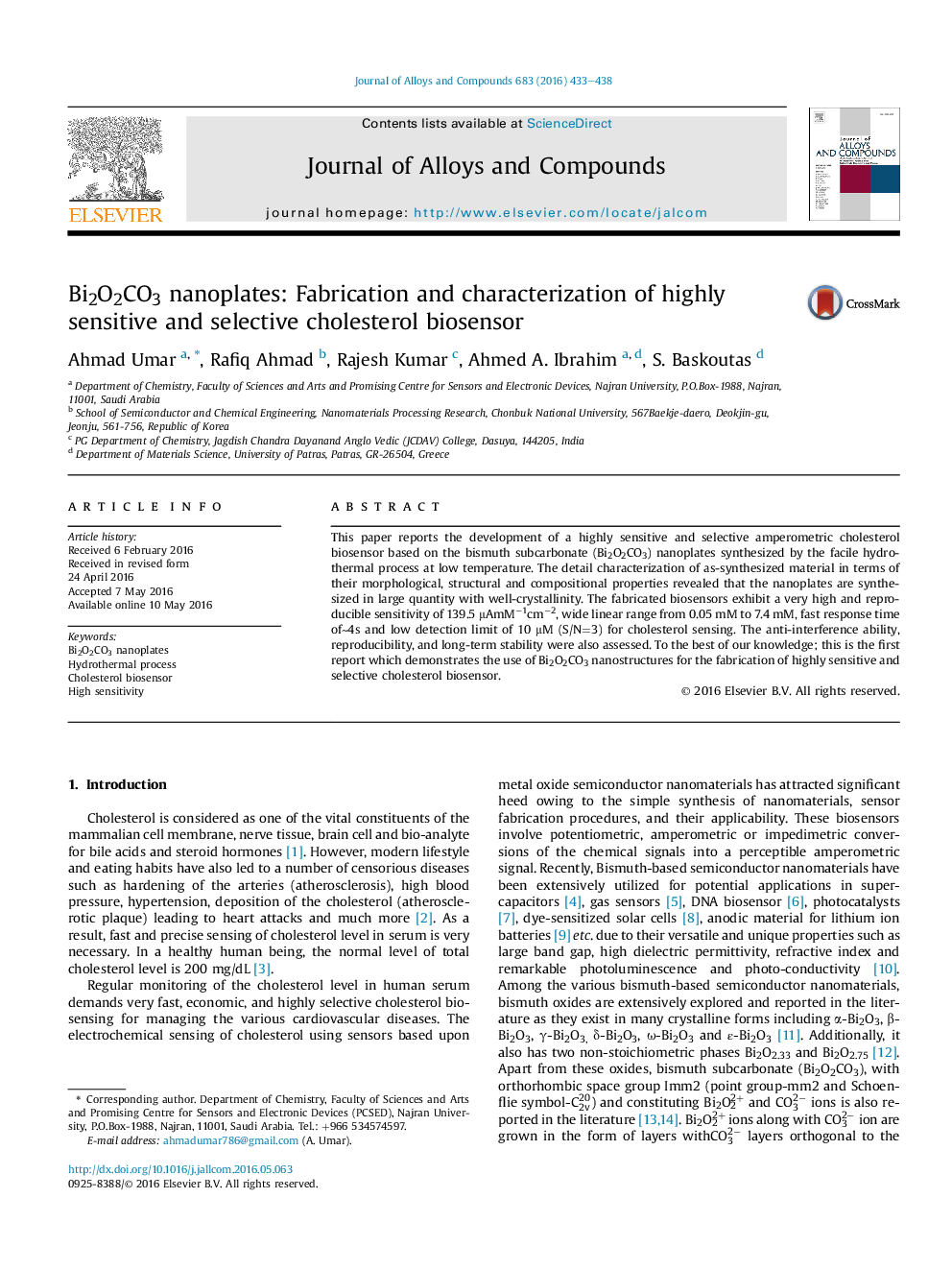| Article ID | Journal | Published Year | Pages | File Type |
|---|---|---|---|---|
| 1605485 | Journal of Alloys and Compounds | 2016 | 6 Pages |
Abstract
This paper reports the development of a highly sensitive and selective amperometric cholesterol biosensor based on the bismuth subcarbonate (Bi2O2CO3) nanoplates synthesized by the facile hydrothermal process at low temperature. The detail characterization of as-synthesized material in terms of their morphological, structural and compositional properties revealed that the nanoplates are synthesized in large quantity with well-crystallinity. The fabricated biosensors exhibit a very high and reproducible sensitivity of 139.5 μAmMâ1cmâ2, wide linear range from 0.05 mM to 7.4 mM, fast response time ofâ¼4s and low detection limit of 10 μM (S/N=3) for cholesterol sensing. The anti-interference ability, reproducibility, and long-term stability were also assessed. To the best of our knowledge; this is the first report which demonstrates the use of Bi2O2CO3 nanostructures for the fabrication of highly sensitive and selective cholesterol biosensor.
Related Topics
Physical Sciences and Engineering
Materials Science
Metals and Alloys
Authors
Ahmad Umar, Rafiq Ahmad, Rajesh Kumar, Ahmed A. Ibrahim, S. Baskoutas,
